-My Personal Experience in Pakistan-
-Dr. Bishnu Hari Nepal
Former Ambassador of Nepal to Japan
And
(Theorist & Practitioner of International Relations, Peace, Conflict, Security and Development Studies. Available as Global Critic of International Relations).
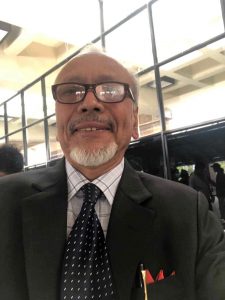
The Prologue:
1975, I was a Civilian Teacher at the Royal Nepalese Army, under the Ministry of Defense. 1980, liked to change the career, and appeared in Nepal Public Service Commission Exam, Section Officer, in Admin Service. Even though, I had topped the PSC Exam and all other academic criteria then needed for Ministry of Foreign Affaairs (MOFA) were fulfilled, but, due to my political background since student life, I was not given MOFA politely rather was placed at the Ministry of Tourism and Civil Aviation-with a verbal assurance that I would be transferred to MOFA when they had a vacancy.
I accepted it believing the then Cabinet Minister of Tourism & Civil Aviation late Hon. Drona Shumshere Rana, who also was the elder brother of the then Foreign Secretary, and later, Ambassador, late Jagadish Shumshere Rana.
This prologue had to be mentioned, because it was the base of the link of my first Pakistan visit while at Tourism.
The Pakistan International Airlines ( PIA) Nexus:
The then Hon. Tourism Minister Mr. Drona Shumshere Rana chose me to be his official Private Secretary at the Tourism Ministry in his secretariat. This gave me ample opportunities to learn in a short time how the ministry, departments and affiliated institutions run nationally and internationally. I was so fortunate that the Minister wanted my opinions even on appointments of suitable Secretary and DG’s besides drafting policy speeches for him and so on.
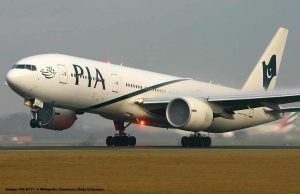
This way, as a young and energetic officer, at the ministry, the time was passing on. The very time, something unexpected happened. Nepal Cabinet decided to send me as a member of the Ministerial Level Delegation to participate in the 4th General Assembly meeting of the UNWTO(then known as WTO only) -being held in Rome, during 13-27 September, 1981. For travel arrangements, we chose PIA -being economically reasonable and convenient for us -as our airline to fly to Rome and back to Kathmandu. In fact, it was my 2nd international flight -the 1st by RA to New Delhi was in 1977.
I was also so very lucky, perhaps during my probation period, I got opportunity to represent the Country at the UNWTO 4th General Assembly of world government body.
Naturally, it was the first international conference for me. Nepal was the Chair of the Executive Council, the Philippines-the President and Pakistan the VP by the Manila Declaration.
Being the Chair of the Executive Council, Nepal really had an important role to play in preparing the UNWTO Statutes. I practically exercised so many norms and values of international forum indeed.
But one crucial moment for Nepal came while the discussion on PIA‘s affiliate membership of the UNWTO was debated. It was a Cold War Period and the SAARC was not established yet. The world was divided in two camps led by the US and the USSR. There was really a very hot debate in against -led by USSR & India, and in favor of the membership led by USA and its allies. Finally, it reached the voting phase.
Other two members of our delegation, from the ministry, were out -for lunch. We two-the Minister Mr. Rana and myself were there present when the voting started. Then Minister Rana asked me, “Bishnu, what is your opinion?”
I replied, “Sir, we are relatively a small non-aligned country. Since we are also Chair of the Executive Council, it’s not nice to be absent, better we abstain Sir, so that the presence counts.”
The Minister advised me, “OK, then, you raise your hand, when they call to abstain.” Yes, Nepal did so.
The PIA won the membership by one vote, which, as the USSR ally, Indian delegation later openly disclosed coming to our seat that if Nepal had voted against, they could win the vote. The Minister told them, “As you know, Nepal has good relations with all countries of the world like your country India, Pakistan, USA and USSR and so on. We didn’t want to betray any of them, Excellencies.”
This is how I learned diplomacy by doing, and important that PIA became the affiliate member then [Resolution 85(IV): Membership of the Organization (Agenda Item 7, p.8) and Report of the Committee of Affiliate Members (Agenda 21)].
The World Tourism Day Proposal:
Second most important role Nepal and Pakistan played together there was on the proposal -to start-declare 27 September -as the World Tourism Day (Resolution-107(IV)-Agenda Item 17).
My first visit to Pakistan:
While returning from Rome, two members of our delegation returned to Kathmandu via New Delhi. The Minister and myself also had to go to Bangkok to attend another international event. We were in transit at Karachi International Airport. Pakistan allowed us to enter to the city of Karachi for some hours. Our Liaison Officer took us to the famous seashore perhaps the Clifton Beach or so. For me, it was a first seashore visit in life! That time I was a non-veg. To talk about the Pakistani Food, I had the best taste for life of the Chicken Kebab uphill until today indeed!
While returning after some hours, the Liaison Officer’s Res was on the way and we visited his residence for a coffee. It was my first visit to Pakistani people’s residence. Unforgettable for me was that I saw a colored TV in a residence, for the first time, because, Nepal still had no TV until then!
The SAFMA as the Strongest Bridge:
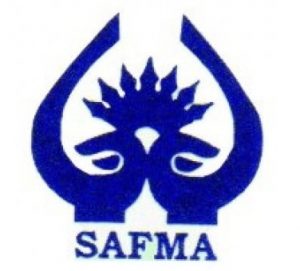
I had keen interest in Journalism-was editor-in-chief of ASCOL-15 Dine-Bulletin/bimonthly/1971-73, Desk Ed/part-time,The Rising Nepal/1973-80, then after, advisor in some publications, Founder Patron “Gauri Shanker Times”, Charikot, 1996-98++.
In between, at the active initiative of Lahore based veteran journalist and writer Mr. Imtiaz Alam (@ImtiazAlamSAFMA ) the “South Asian Free Media Association” was established.
To begin, perhaps in Sri Lanka, Gopal Thapaliya from Nepal was elected Founder President, and Imtiaz Alam, Founder Secretary General (continuing). I had the honor to homework for Gopal Thapaliya’s speech, after which, he was unanimously elected President.
Then after, I became SAFMA member, headquartered in Lahore. So many regional programs of high significance were organized in Kathmandu, and the region. Above all, SAFMA greatly helped for regional harmony, and particularly, reducing tensions between India and Pakistan.
The SAFMA establishment had three more important setups-Free Media Foundation (FMF), South Asian Journal (I wrote many pieces for it) and South Asia Policy Analysis Network (SAPANA) research books. I became SAPANA-Nepal Honorary Country Director (continuing) and also consultant to FMF.
The SAPANA did historic publications of research based -14 books- on regional peace, security, nuclear disarmament and development studies. Now runs a SAFMA Library, and a SAFMA Training School since 2007 in Lahore, and is active on human rights and more activities even today.
The Historic South Asia Free Media Association (SAFMA) New Delhi Declaration 2004:
It was held October 9-12, 2004 on “Interstate Conflicts in South Asia”. I led a 10-member-Nepalese-delegation composed of veteran journalists and analysts like Yubaraj Ghimire and more. I had the honor to jointly inaugurate the conference with the then Minister of External Affairs of India Mr. Natwar Singh.
The Chief Guest of the Concluding Session was the leader of opposition late Jaswant Sigh-who really had so kind words about me during his address.
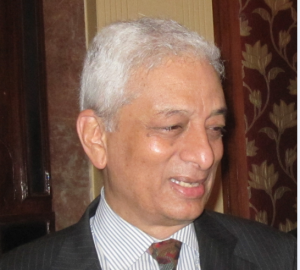
My paper entitled “Need of New Thrust in Nepal-India Relations” was commented by the veteran diplomat Former Ambassador of India to Nepal K. V Rajan. This conference remained historic because it really had open discussions on relations between India and Pakistan and Nepal and India, and more.
It helped much to normalize conflicting relations between the countries of the region, and naturally, focused more to Indo-centrism, India being a country at the epicenter.
Not only SAFMA discussions, but also I was invited to address IDSA program -at the sideline-when the very time a Norwegian Minister was speaking at its Headquarter. After some years, I got a book from IDSA on India-Nepal Relations to be edited as expert/consultant.
It was the first time that India, through Track Two Diplomacy, agreed to review Nepal‘s concerns of trade, tourism, transportation, transfer of technology, hydropower, energy and unequal treaties and border conflicts and issues in SAFMA New Delhi Declaration 2004 indeed. I personally have taken it as my lifetime achievement in enhancing Nepal-India Relations.
When I handed over the declaration at the embassy, the then Ambassador of Nepal to India, Karna Dhwaj Adhikari(I still recall) was so much overwhelmed. Now, it has reached to the current phase of EPG report! Thus, SAFMA was/is really a strong and friendly bridge to reach the peoples and governments between the countries.
My First visit to Islamabad and Lahore 2005:
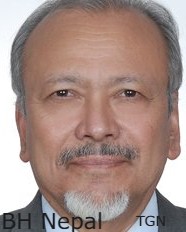
After New Delhi 2004, most significant for me was SAPANA Summit 2005 represented by front line experts and academicians from South Asia and the world in Islamabad. My first impression of Islamabad was that it was such a modern city that it looked like any top modern cities of the West. That’s why perhaps Pakistan made it her new capital.
With so many regional issues, my paper was based on Nepal as a Water Power Country in the world.
I had included my NIBB Water Ways: 21st Century Multipurpose Project vision for sub-regional navigation between today’s IBBN, but then, I had named NIBB- between Nepal, India, Bhutan and Bangladesh.
In Islamabad, I found that there were issues of upstream and downstream conflicts between India and Pakistan and Afghanistan and Pakistan. Also the same was between India and China in Brahmaputra.
Therefore, I extended my theory NIBB Water Ways of Eastern Himalayas to “NIBBCAP WM: 21st Century Multipurpose Project” covering China, Afghanistan and Pakistan also. So, I presented it in the changed / extended version in which WM meaning broader Water Management in place of WW -Water Ways of my theory during my presentation. It was of lifetime value for me.
Secondly, it was remarkable to attend the Breakfast in honor of the delegation invited by the then 17th PM of Pakistan Mr. Shaukat Aziz -also the renowned economist -in his grand official residence. Inside the hall, I was looking for my seat somewhere behind, but one gentleman came to me and informed, “Dr. Nepal, your seat is with the Prime Minister.” It was the greatest official honor for me after Tokyo while in Power, in fact!
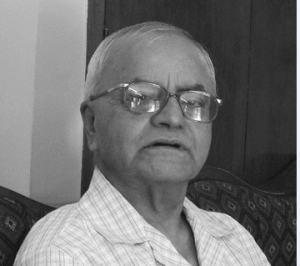
Thirdly, after the end of the SAPANA conference, we three, Prof Dr. Lokraj Baral, Prof. Dr. SD Muni and myself were privileged to visit Lahore for one night and two days waiting our flights. Certainly, Lahore was different from Islamabad-more cultural and lively. Nepal had special attachment with Lahore for training the British Gurkhas -who returned to Nepal with nick name “Laahure”-from Lahore!
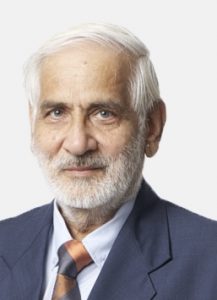
My second visit to Islamabad 2015:
Immediately after Nepal’s disastrous EQ 2015, I had to represent CSAS -Center for South Asian Studies (on request of its ED and my good friend Dr. Nischal Nath Pandey) to an international conference on “Policy Approaches of South Asian Countries: Impact on the Region” organized by the famous quasi-governmental research organization of Pakistan, the IPRI -Islamabad Policy Research Institute led by the Former Ambassador of Pakistan to Nepal HE Sohail Amin ( late) and Hans Seidel Foundation. Present Foreign Secretary Mr. Bharat Raj Poudyal was the Ambassador of Nepal to Pakistan in Islamabad, then. It was really an opportunity for me to meet renowned experts and scholars from Pakistan, the region and abroad.
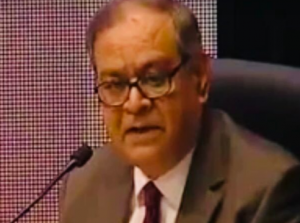
Grateful to the distinguished participants for liking my paper “Prospects of Energy Cooperation in South Asia” specially highlighting the energy status of Nepal, titanic risks of Himalayan Zones and the theories of ways and means to utilize the South Asian Resources. I still recall the comments made by the Chinese delegate on my presentation on the issues of the role of BRI vis-a-vis CPEC, and possibilities in Nepal as a Gateway between China and South Asia. Extend thanks to Islamabad Policy Research Institute (IPRI) and Hans Seidel Foundation for publishing my paper [in a book form, IPRI, 2016, pp. 98-120].
After knowing that I am participating in the IPRI conference, extend heartfelt thanks also to Former Ambassador of Pakistan to Nepal Her Excellency Ms. Fauzia Nasreen, who as President of another famous research organization organized a separate talk program in my honor, at the sideline of IPRI conference, where I got another opportunity to meet more Pakistani Scholars and Diplomats for extensively highlighting, exchanging ideas and opinions and enhancing Nepal-Pakistan Relations.
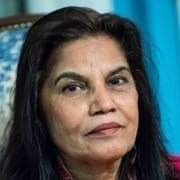
Conclusion:
Exchange of people-to-people visits help to understand and know the cultures, societies, languages, way of life, civilizations, academics, way of thinking, technology, economies, ethos, value systems, psychologies, perceptions and many more, better.
It ultimately helps to promote the basic bilateral parameters of diplomatic values in trade, tourism, transportation, transfer of technology, investment promotions, environment conservation and energy generations defined by the modern day economic diplomacy.
These events have encouraged me to study more and more about Nepal-Pakistan Civilizations and Diplomatic Relationships. I have been spontaneously contributing papers, participating in academic interactions, activities of the Pakistan Embassy in Nepal and seminars organized by the Pakistan Study Center, time to time.
On the happy occasion of the Independence Day 2023, I congratulate and extend best wishes to the people and government of Pakistan, and to HE the Ambassador, and Diplomats at the Embassy of Pakistan in Kathmandu.
End text.
# Thanks the distinguished author Dr. Nepal: Ed. Upadhyaya. N. P.
